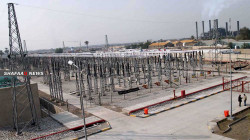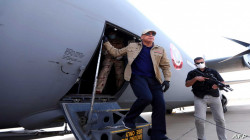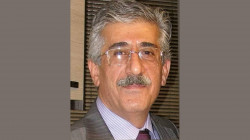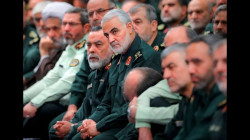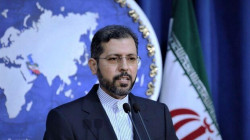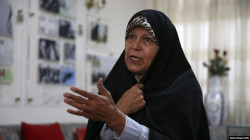MEI: will Tehran repeat the 1987 mistake?
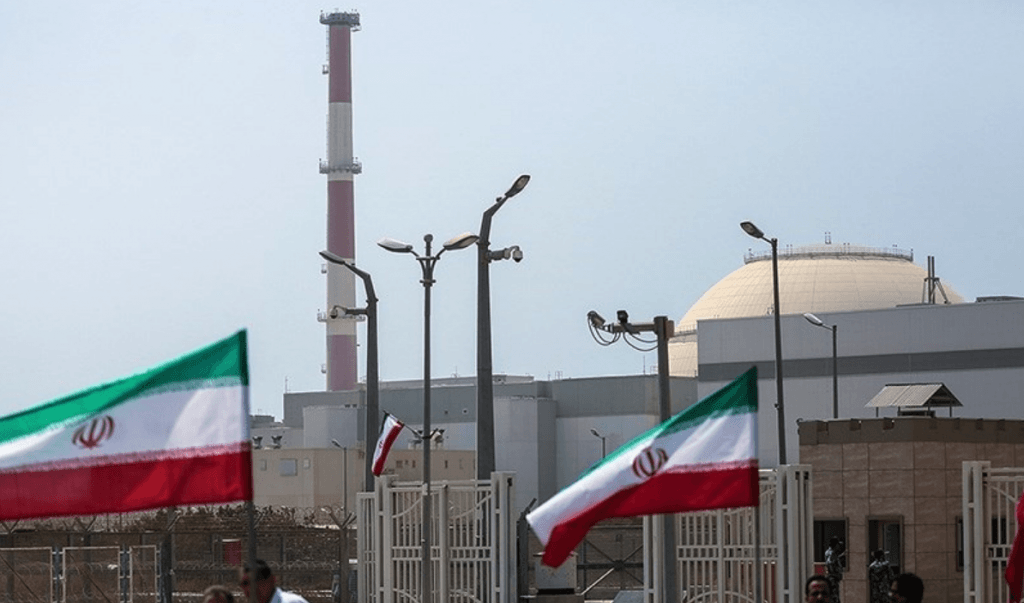
Shafaq News/ In July 1987, Iran lost the opportunity to end the Iran-Iraq war as part of a U.N. deal by imposing two preconditions, one of which was impossible to meet. In 2022, Iran is likely to lose another opportunity, this time to return to the 2015 nuclear deal, once again by imposing two preconditions, one of which is also impossible to meet.
On July 20, 1987, as part of the ongoing diplomatic efforts to end the Iran-Iraq war, the United Nations Security Council (UNSC) voted unanimously in favor of resolution 598. The resolution demanded “an immediate cease-fire, the withdrawal of all forces to internationally recognized boundaries, and the early exchange of prisoners of war.” Additionally, the UNSC called for the establishment of a body that would determine which side was responsible for starting the conflict — a clear effort to reach out to Iran, which had for years, quite rightly, accused the Iraqi regime of starting the war.
The Iraqi regime of Saddam Hussein accepted the resolution, but Iran set two preconditions. The first called for the removal of Saddam from power. Iran had been making the same demand since shortly after Iraq invaded its territory in September 1980. The second called on the U.N to immediately recognize Saddam as the aggressor. Both demands had their own logic. Saddam was the aggressor — it was his decision to invade Iran that started the war — and in the following years, his military had subjected Iranian forces and even some Iranian civilians to repeated chemical attacks. Iran argued that as long as Saddam remained in power, he could always launch another attack against Iran, even if a ceasefire agreement were in place.
Although its preconditions had their own logic, Iran's first demand, calling for the removal of Saddam from power, was impossible to meet. At that time, no foreign government or international body was willing or able to force him to step down. It was simply an impossibility.
What further complicated matters was Iran's second precondition, which called for the U.N to recognize Saddam as the aggressor, before the two sides had first reached a comprehensive ceasefire. Although not impossible, this condition was difficult to meet as doing so would have dissuaded Saddam from agreeing to the ceasefire. This, in turn, would have torpedoed efforts by the U.N to start the process of ending the war, which by then had been going on for seven years.
Ultimately, Iran's decision to impose preconditions in July 1987 prolonged the war, and this turned out to be a very costly mistake. Starting in February 1988, Iraq, for the first time, attacked Tehran with its new al-Hussein missiles. These were Scud missiles, modified by Iraqi engineers, with Soviet technical assistance. Over 52 days beginning in February, Iraq fired 118 al-Hussein missiles at Tehran, killing 422 civilians and injuring 1,579 others. Residents of the Iranian capital were petrified by the attacks and nearly a quarter of them fled, causing major damage to the country’s economy.
Iran also became more isolated, leading to a tightening of weapons sanctions. Meanwhile, Iraq was receiving top-of-the-line weaponry from France and the Soviet Union. This asymmetry resulted in major Iranian defeats on the battlefield between July 1987 and July 1988. During that period, tens of thousands of Iranian soldiers and civilians were killed and injured, and millions of dollars’ worth of additional damage was done to Iran's economy. In April 1988, Iran suffered a notable defeat when Iraq retook the Faw Peninsula, which Iran had captured in February 1986. These developments, and the perception that Iran's own leaders were not interested in ending the war, caused a major drop in the number of Iranians volunteering to fight.
These factors and others ultimately forced Ayatollah Ruhollah Khomeini in July 1988 to drop Iran's preconditions and agree to a ceasefire, as per UNSC resolution 598. This decision was so difficult that Khomeini said it was “worse than drinking poison.” Had the Iranian supreme leader accepted the original ceasefire offer in July 1987, he would have saved the lives of countless Iranians. He would also have been able to negotiate with Saddam from a stronger position, as Iran still held the strategic Faw Peninsula in July 1987.
Iranian Supreme Leader Ayatollah Ali Khamenei is now repeating his predecessor’s mistake. As a prerequisite for Iran’s reentry to the 2015 nuclear deal, known as the Joint Comprehensive Plan of Action (JCPOA), Khamenei is imposing preconditions, and once again one of them is impossible to meet. The precondition in question is that the Biden administration provide a guarantee that no future U.S president will leave the nuclear deal. Iran's demand does have a logic. After all, it was the U.S., under President Donald Trump, that unilaterally withdrew from the JCPOA in May 2018. This was even though, according to the International Atomic Energy Agency (IAEA), Iran had been living up to its responsibilities as laid out in the deal. Accordingly, after Biden leaves office, Iran does not want another U.S president to break the agreement like Trump did.
What makes this precondition impossible is the fact that the U.S is a democracy. It is the prerogative of the president to decide whether or not he or she wants to maintain a deal approved by his or her predecessor. No president can tie the hands of his or her successors regarding signed accords.
And once again, as in 1987, Iran is also making the mistake of adding difficult preconditions to an impossible one for its return to the JCPOA. One of the preconditions is the removal of the Islamic Revolutionary Guards Corps (IRGC) from the U.S. State Department’s Foreign Terrorist Organization (FTO) list. The Biden administration has promised to lift all nuclear-related sanctions imposed by the Trump administration, but the IRGC’s inclusion on the FTO list is not related to Iran's nuclear program. Additionally, the Biden administration has offered the option of removing the IRGC from the FTO list in return for a reciprocal step from Iran. Options offered to Iran include an agreement to pursue follow-on talks on regional issues, the lifting of Tehran’s sanctions on U.S. Central Command, or a commitment for both countries not to target each other’s officials. But Iran has refused to take any reciprocal steps, and recently revealed Iranian plans to assassinate former Trump administration officials John Bolton and Mike Pompeo are likely to complicate matters further.
There is also the issue of the undeclared nuclear material found in Iran in 2019. Despite repeated IAEA requests, Iran has still not provided clear answers about it. Khamenei's foreign policy adviser Kamal Kharrazi declared publicly in July that Iran has the capability to make nuclear weapons. This makes it even more imperative for the EU and the U.S. to get clear answers to the IAEA’s questions.
The consequences of Iran's current strategy of insisting on preconditions are likely to be the same as in 1987: Iran will become more isolated and its economy will face even greater pressure. Meanwhile, Iran should not count on Russia and China to rescue its economy. They have proved to be fair-weather friends before. Currently, Iran is being forced to sell oil to China, its biggest customer, at a reduced price because of the discounts being offered by Russia. The Russians are also undermining Iran's steel industry by undercutting Iranian producers on price. Consequently, Iran's steel exports have dropped from $6 billion annually to almost zero. Meanwhile, despite the 25-year, $400 billion strategic agreement between Beijing and Tehran, China will not invest in Iran in any meaningful way as long as it remains under sanctions.
Iran's strategy of insisting on preconditions, which is blocking the talks, is also likely to turn more Iranians against the nuclear program. The Iranian people are being crushed by the ever-worsening economy, as inflation, especially for essential foodstuffs, reaches 90% officially and rents are increasing by as much as 350% in some parts of Tehran. With no hope of change in sight, they are unlikely to tolerate such conditions indefinitely.
By holding out against Biden while counting on China and Russia, Ayatollah Khamenei will find that, over time, his hand will only become weaker. Avoiding the mistake Iran made in 1987 by dropping the current preconditions could save Ayatollah Khamenei and the Iranian people from unnecessary pain. Repeating this mistake could ultimately force Ayatollah Khamenei to follow in the footsteps of his predecessor and make a decision so difficult that it will be “worse than drinking poison.”
(By Iran-born Israeli scholar Meir javedanfar for the Middle East Institute)
